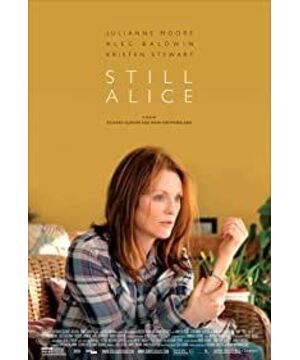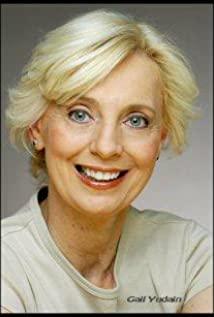Source: The Hollywood Reporter
Compiler: Ruobing
Still Alice (2014) Based on the best-selling novel I Miss Myself by Lisa Genova, PhD, a neuroscientist at Harvard University ". Julianne Moore plays a college professor diagnosed with early-onset Alzheimer's disease (dementia). With 5 million people in the U.S. (36 million worldwide) afflicted by Alzheimer's disease, Still Alice's warm, compassionate yet somewhat piercing sincerity will reach thousands of viewers. A distinguished linguistics professor suffers from a terrifying chronic disease that devours his own life, and the film drags the audience directly into the fear of Alzheimer's disease, fully revealing the identity and normality of life held by the disease. The power of total destruction, Julianne Moore gave her best performance since filming. The film is co-written and directed by Richard Glazer and Wash Westmoreland, and the content of the script is completely faithful to the original novel with a large readership.
Rather than depicting the devastating effects of Alzheimer's disease on the protagonist's family and social relationships, the script digs deep into a woman's perception of her deteriorating condition, emphasizing Moore's facial expressions and The behavioral responses, the weaknesses and strengths she pours into the characters, wrestle back and forth like a seesaw. For all professional actors, interpreting such roles without giving them a sentimental sensibility or leaving the performance superficial will be criticized by industry insiders. But Moore's performance in the film didn't get out of hand for even a second, thanks of course to Kristen Stewart, Alec Baldwin, Kate Bosworth, Hunter Parry who played her family The wonderful accompaniment by Shi and other stars. Even though the acclaimed reputation has provided the most powerful stimulus for the audience to understand the film's theme, the involvement of the Alzheimer's Association and producers such as Christine Vachon, Maria Shriver, Trudie Styler has added to the film's shooting.
Alice Howland (Julianne Moore) is a socially respected and elite intellectual who, despite her late 50s, still perfectly maintains a charming and energetic New Yorker temperament. Alice's beloved husband, John (Baldwin), considers her the smartest and most beautiful woman he has ever met. Alice and her husband have three grown children—Anna (Bosworth), Tom (Parish), and an aspiring actress, Lydia (Stuart); none of the children may yet Success, but at least they are all living the life they want. In the eyes of outsiders, Alice has all the labels classified as happiness, but the peace of life is disturbed when she frequently forgets basic vocabulary. As a professor of linguistics at Columbia University, language is her most confident tool and her way of making a living; in her private space, Alice's life trajectory is slowly losing focus due to the manifestation of the disease. A terrified Alice secretly consulted a neurologist, who ruled out a brain tumor but diagnosed Alice with a rare disease for her age (under 65). -- Early-onset Alzheimer's disease.
Alice's initial treatment was to hide her illness, but her sullen attitude toward dinner guests at a Christmas family reunion made her husband aware of her anomaly. Doctors frankly told Alice's family that the disease was hereditary and that her children had a 50% chance of developing it. Alzheimer's disease was like a depth bomb to Alice's family, especially when one of the children got a positive genetic test result, the mood of all family members became worse. But the bad news was soon overshadowed by the fact that Alice's own intelligence was declining, and her condition was deteriorating horribly and rapidly. As Alice's family struggles and painfully adjust to the situation, the entire cast brings out the most authentic colors, including some surprising role transitions for the audience.
Although the film is two hours long, the rhythm of the plot is very fast and smooth, probably because the audience hopes that the deterioration of the disease will be slower, and that time can stop for poor Alice. But time cannot stand still. Alice walked down the cognitive ladder step by step. Fortunately, she did not think the whole process was a torture. She struggled to maintain her connection with the surrounding environment. There’s a great scene in the film where Alice stumbles all the way through the suicide steps following the instructional video she left on her computer when she was awake. Although this is one of the most emotionally intense scenes in the film, the directors are able to sneak in a hint of humor and a little hope.
The film doesn't completely indulge in a bleak tone of disappointment. Alice's invitation to speak at the Alzheimer's Symposium is another key scene in the film, and her anxiety in preparing the speech is ultimately moved by the sincerity and touchingness she reveals in her official speech. dispelled by the monologue.
Still Alice's narrative focus and tension are lacking in many other films of its kind. Even though the film does not attempt too many novel and bold video experiments, the director adopts a restrained and restrained form of expression in dealing with such themes, which undoubtedly surpasses the artificial sadness. The film ends beautifully, with a poignant and poetic dialogue between mother and daughter that not only outlines Moore at his best, but also allows "Twilight Girl" Stewart to show unexpected depth of performance. The film's deeply personal emotional experience should be related to director Richard Glazer's own health crisis during filming - after Glazer was diagnosed with ALS ("ALS") , he had to use the IPAD's speech synthesis APP to cooperate with friends to direct the film.
Still Alice's technical crew humbly hide behind the scenes, all centered around the heroine: to make sure the spotlight stays on Julianne Moore, even out-of-focus footage is used to simulate her in-play In the mood, Moore didn't have to pick his own costumes, and so on.
Note: [Alzheimer's disease] Alzheimer's disease (AD) is a progressive neurodegenerative disease with insidious onset. Clinically, it is characterized by generalized dementia such as memory impairment, aphasia, apraxia, agnosia, impairment of visuospatial skills, executive dysfunction, and changes in personality and behavior. The etiology is still unknown. Those with onset before the age of 65 are called Alzheimer's disease; those with onset after the age of 65 are called senile dementia. (According to Baidu Encyclopedia)
View more about Still Alice reviews











